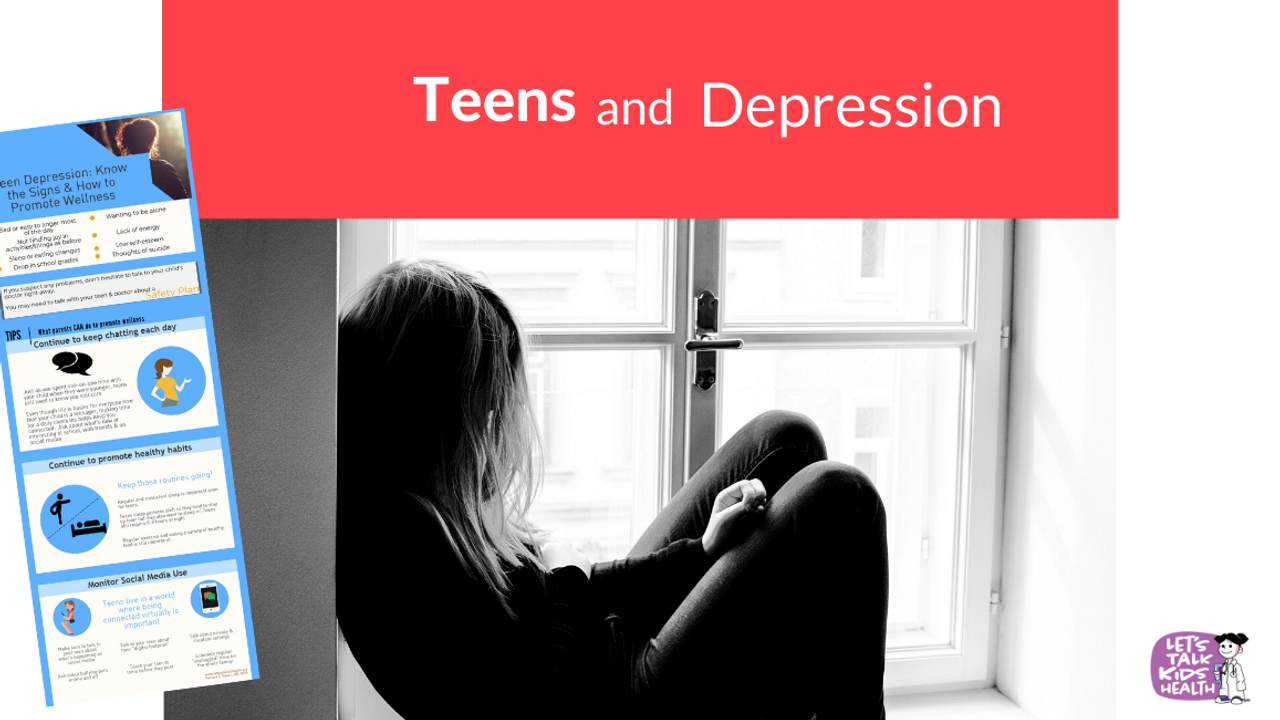Know the Signs of Teen Depression & How to Promote Wellness
Feb 27, 2018
On Monday, the revised two-part Guidelines for Adolescent Depression-Primary Care (GLAD-PC) were published in Pediatrics. The original guidelines were released in 2007. The guidelines reflect 10 years of additional research and evidence around what practices can do to prepare, identify and begin to manage teen depression (part I) and guidance around ongoing management (part II).
These guidelines help primary care providers ready their practices to offer yearly screening of teen mood as part of their annual check up.
What does this mean for parents?
Adolescence is a time of rapid change, physically as well as emotionally and socially. We rely upon parents to continue to bring their teens to well child visits for their annual check ups. As children mature, pediatricians will want to begin to offer teens the opportunity to chat with them without a parent present. These split visits help teens learn how to begin to take on more of their own health care and build their own relationship with their doctor.
When you go to the doctor, your teen should be asked to complete a questionnaire about their mood. There are different ones available. The key feature is that it will ask your teen to respond to questions about how they are feeling and whether they have ever had thoughts of harming themselves.
The doctor will be reviewing the answers with your teen to clarify and/or get additional information. Parents may be tempted to "help" or want to know how their teen responds. It is important to provide teens the ability to respond as honestly as possible and sometimes that means giving them the space they need.
Related: Experts Now Recommend Screening for Depression Starting at Age 12 (Teen Vogue)
It is important to give teens the space to begin to discuss things with their doctor because as they become young adults, they will be expected to do this on their own without a parent. This transition time can feel awkward at first for both the parent and teen, who were accustomed to seeing the pediatrician together. However, providing teens the ability to speak separately to their doctor is important as they may not otherwise talk about their health as openly if their parent was present.
Pediatricians will often set the tone by inviting the parent and teen to begin the visit together and share expectations that at some point the parent will be asked to step out of the room to provide the teen their own time with the doctor.
Parents’ input into their thoughts about how their teen is doing in school, how they are navigating friendships and social situations and overall health is still important. At this point, pediatricians are still very much wanting parents to remain involved. It is especially important for parents to be able to monitor for changes in their teen’s mood, sleeping or eating patterns or participation in social activities.
What can parents do?
Know the signs of possible teen depression and when to seek help.
When to worry:
- If your teen shuts down
- Talks about wishing he/she were dead
- Skipping school
- Not caring about their appearance
- Preferring to be alone
- Changes in sleep or eating habits
- Not doing well in school
- Arguing or moody
- Seeking out or showing interest in weapons, guns, pills or death
Promote wellness and health by:
- Keep routines going
- Promote 8-9 hours of sleep/night
- Regular exercise
- Proper nutrition
- Healthy social media use, including limits and non-screen time
- Regular family meals
- Regular "Check ins" to discuss what is happening in their lives
If you are concerned about your child’s wellbeing, NEVER hesitate to get help. Schedule a visit with your teen's pediatrician or primary care provider.
RELATED: Adolescent Depression: What Parents Can Do To Help (HealthyChildren.org)
Continue to acknowledge feelings and listen. Don’t try to offer quick fixes. Reach out to your child’s pediatrician/family physician for guidance. Check in with your child’s teacher about any changes or concerns they may have about your teen.
VIDEO: Pediatricians call for Universal Depression Screening for Teens (Fox59 news)
Join my Facebook Community to talk more about this blog post and get more parenting support!
Stay connected with news and updates!
Join my mailing list to receive parenting tips and resources, including information about my weekly Facebook Live guests and workshops.
And don't worry, your information will not be shared.
We all hate SPAM. So I promise to never sell your information, for any reason.

